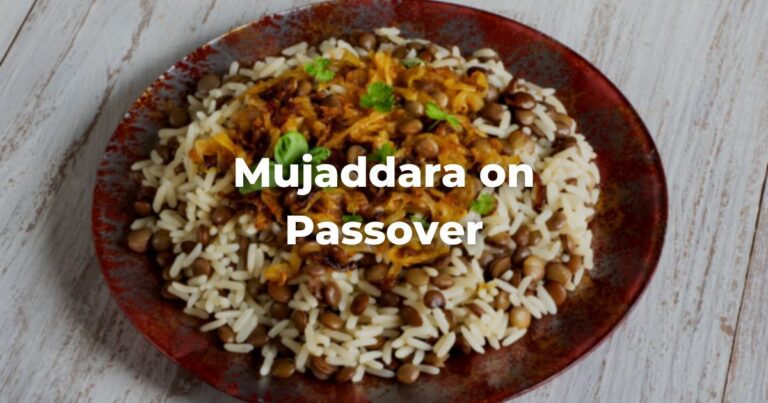The Hebrew word kasheir, כשר, of which “kosher” is merely the anglicized version, means simply “fit” or “proper” for use.
In classical Jewish sources, the term is used for all sorts of things, but primarily for foodstuffs deemed edible according to biblical stricture and for ritual items, such as a TorahRefers to the first five books of the Hebrew Bible, the Tanakh, also called the Five Books of Moses, Pentateuch or the Hebrew equivalent, Humash. This is also called the Written Torah. The term may also refer to teachings that expound on Jewish tradition. Read more scroll or a lulav and etrog, that meet prescribed halakhic requirements.
Colloquially, however, the term is even applied to people if they are qualified or permitted to perform certain religious or legal functions (such as serving as witnesses) or if they act in an exemplary moral way.
Still, when English-speaking Jews use the word “kosher” or speak about kashrut, the reference, more often than not, is to the dietary laws and traditions that have been an integral part of the Jewish people’s way of life for millennia.
Given the importance of kashrut in Jewish life, it is unfortunate that so much about it is so widely misunderstood.
Some people, for example, assume that kashrut is only about cleanliness and hygiene, and therefore believe it is no longer necessary in the modern world.
Others believe that “kosher” is merely a word for Jewish ethnic food. Still others assume that food that is misleadingly marketed as “kosher-style” is virtually identical to kosher food.
None of these assumptions is correct.
Kashrut is among the most important institutions of the Jewish religion, and constitutes nothing less than an attempt to turn the act of eating—surely among the most banal and ordinary of life’s daily tasks—into a holy opportunity to acknowledge God as the Source and Sustainer of all life.
Perhaps I should begin by mentioning the classic argument against keeping kosher: that the primary purpose for keeping kosher in bygone days was to promote and maintain good physical health. “All food is safe now,” the argument goes, and “the laws of kashrut are obsolete because we now have government oversight of food preparation.”
Beyond a doubt, the systems for growing, preparing, and distributing food have improved vastly over the millennia, but there is no evidence that physical health was ever the basic reason Jews kept kosher.
Nor does the fact that there are healthy aspects to maintaining a kosher diet constitute convincing proof that health considerations were the original context in which these laws were developed. (It is worth noting that one can obey the laws of kashrut carefully and still eat unhealthily.)
Indeed, in the opinion of most authorities, if there is a relationship between kashrut and the health of the individual, it is their spiritual health that is in question—specifically, the question of how best to bring a spiritual dimension to even the most bestial of human needs, the need to nourish oneself and to sate one’s hunger.
While all living creatures must consume nourishment, we human beings are different because we have the ability to add new dimensions to even the most mundane aspects of life by making them holy. That opportunity, that chance, to add a level of sanctity to the everyday act of eating is the essential element of keeping kosher.
Keeping kosher forces us to stop and think about what we eat, when we eat, even about the plates on which we eat and the pots and pans in which we cook.
In turn, this effort to ensure that we are following the rules appropriately forces us to focus on God’s structure for living and eating and, in so doing, to allow a spark of holiness to illuminate our everyday lives.
It also bears mentioning that the reverence for life engendered by the dietary laws has contributed over the generations to the development of a tradition that demands humane treatment of all living creatures. Even as we depend on animals for food, we are directed to ensure that we do not become callous toward animal life.
Keeping kosher also facilitates and strengthens Jewish identification.
Faithfully observing the laws of kashrut helps maintain the connection between our own generation and past generations of Jews. Taking care with our eating also creates a link among Jews today by establishing an overarching bond with them that transcends the details of ethnic cuisine or dining customs.
Keeping kosher is an active, vital way to identify as a Jew.
Finally, many people have long felt that there is a disconnect between scrupling mightily regarding the observance of the law while demonstrating an apparent disregard for the health, safety, and dignity of food industry workers.
Responding to the dissonance, the Rabbinical Assembly and the United Synagogue of Conservative Judaism began in 2006 to work together to create Magen Tzedek, a system intended to certify adherence to ethical standards with respect to the treatment of workers in the food industry in a variety of diverse areas such as the payment of decent wages and the provision of appropriate safety training, as well as proper treatment of the animals to be slaughtered.
The project has helped to move the discussion of ethics in kashrut to the mainstream kashrut supervision agencies and has thus made consumers of all stripes sensitive to the meta-issues involved in kashrut observance.
The process of establishing reasonable yet enforceable standards continues and, as of this writing, initial inspection and supervision of kosher food providers has already begun to determine which will receive a certification mark known as the “Magen Tzedek.”
For readers approaching the laws of kashrut for the first time, a very accessible introduction is the late Rabbi Samuel Dresner’s The Jewish Dietary Laws, now published with a practical guide to the laws of kashrut by Rabbi Seymour Siegel and David M. Pollock as Keeping Kosher: A Diet for the Soul (New York: The United Synagogue of Conservative Judaism and The Rabbinical Assembly, 2000).
Adapted with permission from The Observant Life.
Authors
-

Rabbi Paul S. Drazen (1951-2018) spent two-thirds of his rabbinic career serving individual congregations and one-third on the staff of USCJ, all the while creating programs and educational opportunities to make Jewish observance and practice clear, accessible, and attainable for everyone.
View all posts -



The Observant Life: The Wisdom of Conservative Judaism for Contemporary Jews distills a century of thoughtful inquiry into the most profound of all Jewish questions: how to suffuse life with timeless values, how to remain loyal to the covenant that binds the Jewish people and the God of Israel, and how to embrace the law while retaining an abiding sense of fidelity to one’s own moral path in life. Written in a multiplicity of voices inspired by a common vision, the authors of The Observant Life explain what it means in the ultimate sense to live a Jewish life, and to live it honestly, morally, and purposefully. The work is a comprehensive guide to life in the 21st Century. Chapters on Jewish rituals including prayer, holiday, life cycle events and Jewish ethics such as citizenship, slander, taxes, wills, the courts, the work place and so much more.
View all posts






